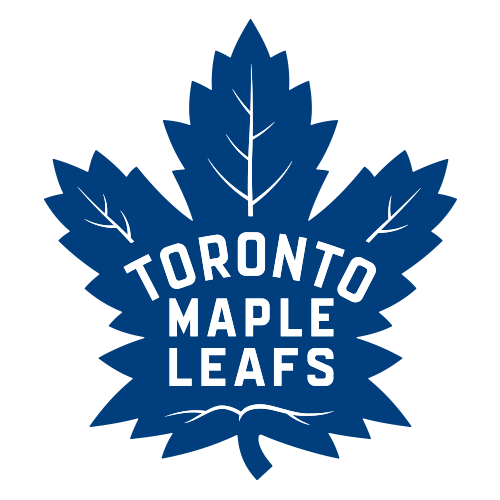Neil Paine
Want to know how long it has been since the last time a Canadian NHL team won the Stanley Cup?
More than three-quarters of the nearly 1,000 current NHL players weren’t born when the Montreal Canadiens hoisted the trophy in June 1993. Only about 3% were at least 5 years old, an age at which they might reasonably have any memory of a Canadian team winning. Mark Giordano, the league’s oldest player this season at 40 — coincidentally, also a Toronto native and a Maple Leafs defenseman — was 9 years old that summer.
For almost every player in the league now, the idea of a Canadian champ merely exists in the world of the theoretical, not reality.
Adding insult to injury, 15 different American franchises — or 60% of all the teams south of the world’s longest undefended border — have won at least one championship in the three-plus decades since the ’93 Habs won it all. All while the proudest of hockey nations, which boasts seven franchises that collectively won 50 titles (out of a possible 76) before the drought, waits patiently for the Stanley Cup to find its way back to home soil.
The good news for Canadian hockey fans, though, is the waiting might be over soon. The 2023-24 season represents the country’s best chance at ending the drought in a long time — perhaps since it began in the first place.
According to ESPN BET odds, there’s a 27.3% chance that one of the four Canadian squads with a legitimate playoff shot — the Leafs, Edmonton Oilers, Vancouver Canucks and Winnipeg Jets — will claim this season’s title. Compared with pre-playoff odds from earlier seasons, that’s the best chance Canadian teams have had in any year since the drought started following the 1992-93 season. (The Canadian teams had a combined 27.8% chance in 1993-94, the first season of the losing streak.)
Sure, that also means there’s a 72.7% chance none of the Canadian teams win, and the drought goes on. But even the most hardened cynics might admit it has been ages since Canadian teams will enter the playoffs looking this good.
For each of the four clubs mentioned above — the ones most likely to make a playoff run — let’s run through the reasons why each might be the special group that finally takes the Cup back home. (With apologies to the other three Canadian clubs, all of which have next to no chance of making the playoffs.) Because who knows? Maybe this is the year Canadian fans can finally enjoy success in the 21st century instead of long reminiscing about that title team from 31 years ago.
Stanley Cup odds: +750 (10.1% adjusted probability)
Elo ranking: No. 6

Last playoff appearance: 2023 second round, lost to the Vegas Golden Knights (4-2)
Why they can end the drought: This might be the most well-rounded version of the Connor McDavid Oilers yet.
After a somewhat slow start (by his standards), McDavid has scorched the league with another MVP-caliber season, and so has usual running mate Leon Draisaitl. Add in explosive offensive seasons from wing Zach Hyman and defenseman Evan Bouchard, and Edmonton ranks among the top 10 in goals per game for the fourth straight season.
But the real change for the Oilers has come on the other side of the puck, where they’ve improved from 17th in goals allowed to ninth under the guidance of new coach Kris Knoblauch for the majority of the season. Goalie Stuart Skinner has been among the league’s best since New Year’s Day, D-man Mattias Ekholm has provided a stalwart on the back end that was missing in previous seasons, the team ranks among the leaders in minutes spent out of its own zone, and it has risen to both 14th in save percentage and fifth in fewest shots allowed. If a solid defense is insurance against your offense flaming out in the playoffs, Edmonton is positioned better than they were in the past, when they relied more on pure scoring.
Key stat as of March 26: This is the first time in the McDavid era that Edmonton has been at least 0.2 goals per game better than league average on both offense (plus-0.48 vs. average) and defense (minus-0.20 vs. average).
Big question: Can they beat the league’s best?
As good as they have been overall, the Oilers have done a lot of their winning against the dregs of the league. Their 75.8% winning percentage against opponents with sub-.500 records is tied for fourth, but their 47.2% mark against opponents with winning records ranks 13th.
That might seem like an odd statistical quirk at most, but my research shows that a team’s record against winning foes during the regular season is a far better predictor of how they’ll do in the playoffs than its record against losing ones. In turn, that could be a problem for the Oilers when they have to exclusively face strong teams in the postseason, no matter how well-rounded they seem on paper.
Toughest potential playoff matchup: Vancouver Canucks
Stanley Cup odds: +1200 (6.6% adjusted probability)
Elo ranking: No. 8

Last playoff appearance: 2023 second round, lost to the Florida Panthers (4-1)
Why they can end the drought: Their star talent is in peak form.
On pace for 70.8 total adjusted goals above replacement (GAR), Toronto’s big three of Auston Matthews, William Nylander and Mitch Marner is the NHL’s fourth-best trio of skaters — and the best the Maple Leafs have put on the ice in their entire 106-year history. (Better even than Babe Dye, Jack Adams and Bert McCaffrey in 1924-25, a star combo I’m sure we all remember well.)
Matthews is, of course, having a season for the ages, flirting with 70 goals; Nylander has continued his ascent and is having the best season of his career; Marner, when healthy, is as consistent a producer as anybody in the league. Whether playing together on the power play — Toronto ranks fifth in power-play percentage — or shuffled around across the forward lines, the Leafs’ top trio will be a load for any playoff opponent to handle, especially depending on how much D-man Morgan Rielly and center John Tavares add as well. Despite Toronto’s reputation for postseason underachievement, that core group has 91 total points in 18 playoff games over the past two seasons.
Key stat as of March 26: Toronto’s 7.5 points per game from forwards trails only Dallas (7.6) for the most in the NHL.
Big question: Is their goaltending and depth going to let them down again?
| Season | Offense | Defense | Total |
|---|---|---|---|
| 2021-22 | 64.3 | 48.7 | 113.0 |
| 2020-21 | 49.3 | 58.8 | 108.0 |
| 2018-19 | 71.2 | 32.2 | 103.4 |
| 2022-23 | 37.6 | 63.0 | 100.6 |
| 2017-18 | 57.8 | 35.7 | 93.6 |
| 2023-24 | 44.9 | 39.8 | 84.6 |
| 2019-20 | 50.2 | 32.4 | 82.6 |
| 2016-17 | 51.2 | 27.2 | 78.4 |
| Source: Hockey-Reference.com | |||
Perennially, the Leafs’ postseason questions involve whether they’ve done enough to support their star-laden core. This season, they’ll most likely be asking netminder Joseph Woll, 25, to backstop the playoff run — and that might not be a terrible plan based on what we’ve seen from him so far. Woll ranks 19th among 67 goalies with at least 15 starts, and he was solid in a pair of playoff starts last season, though that’s the entirety of his postseason experience.
More worrying might be the fact that, despite new general manager Brad Treliving’s best intentions, the non-big-three portion of Toronto’s roster still isn’t as productive as it could be. While newcomers Max Domi and Tyler Bertuzzi have made an impact, Leafs skaters not named Matthews, Nylander or Marner are collectively on pace for their third-fewest total GAR in a season during the big three era (since 2016-17).
Toughest potential playoff matchup: Boston Bruins
The Leafs have a tendency to draw difficult first-round opponents. (For example, see all of those years they drew Boston or Tampa Bay, usually losing in seven agonizing games.) This season appears to continue that trend, with the Panthers tracking to eventually unseat the Bruins for the Atlantic crown, leaving Boston and Toronto on a first-round collision course.
The Bruins swept all four regular-season games by a combined score of 15-7, and their superior depth and stellar goaltending will stand in direct contrast with some of Toronto’s biggest question marks.
Stanley Cup odds: +1400 (5.7% adjusted probability)
Elo ranking: No. 10

Last playoff appearance: 2020 second round, lost to the Golden Knights (4-3)
Why they can end the drought: This is one of the league’s most dominant regular-season teams.
After years of teasing with their young talent, the Canucks put it all together in their first full season under coach Rick Tocchet. Defenseman Quinn Hughes has taken a huge leap forward as the leading Norris Trophy candidate (Hughes and Filip Hronek are the league’s best 1-2 blue-line punch, according to GAR); forwards J.T. Miller, Elias Pettersson and Brock Boeser have put up 243 combined points (and counting); and goalie Thatcher Demko is in the Vezina Trophy conversation.
Vancouver’s plus-0.82 goals per game differential is tied (with Florida) for No. 1 in the NHL, giving the Canucks their best regular-season team since the 2010-11 version that came up just short in the Cup finals.
Key stat as of March 26: Rising by 1.09 goals per game from its minus-0.27 differential last season, Vancouver is easily the league’s most improved team.
0:49
Brock Boeser lights the lamp for Canucks
Brock Boeser lights the lamp for Canucks
Big question: Can the Canucks keep it rolling through the playoffs?
It’s rare to see a team make such a dramatic regular-season improvement and then also carry that over to a deep postseason run. Since 2005-06, nine teams had a negative goal differential in one season and improved by at least a half-goal per game the next campaign while making the playoffs. Of those, none went to the finals; two lost in the conference finals; four made the second round; and three lost in Round 1.
Compared with teams that had similar goal differentials but didn’t make a massive leap year-over-year, our group of overnight sensations won about two fewer playoff games on average. So in the playoffs, Vancouver will not only be fighting against its opponents, but also the history of similar sudden risers.
Toughest potential playoff matchup: Colorado Avalanche
This battle wouldn’t happen until the Western Conference finals, so we’re not guaranteed to see it — and Vancouver should be glad.
The Avs swept all three games of the season series, doubling up the Canucks on goals (12-6), with Mikko Rantanen, Nathan MacKinnon, Cale Makar and Valeri Nichushkin combining for 16 points. Vancouver is the more balanced team in theory, ranking among the league’s top five on both offense and defense — and the Canucks ought to have as good a chance as anybody at slowing down Colorado’s high-powered offense, with their stalwart D-men and Demko in net.
But the Avs have far more playoff experience. A potential matchup may harken back to 2001, when the up-and-coming Canucks of Markus Näslund, Ed Jovanovski and Todd Bertuzzi were humbled by a veteran Colorado squad that was more comfortable with the postseason stage.
Stanley Cup odds: +1600 (5.0% adjusted probability)
Elo ranking: No. 9 in league

Last playoff appearance: 2023 first round, lost to the Golden Knights (4-1)
Why they can end the drought: Connor Hellebuyck might have a monster playoff run in him.
With all apologies to McDavid and Matthews, there’s a chance the most valuable player on any Canadian team this season might actually be a goalie: Winnipeg’s Hellebuyck. The 30-year-old 2020 Vezina Trophy winner has started 52 of the Jets’ 71 games, producing the best save percentage of any netminder with at least 25 starts.
Even as Winnipeg’s offense ebbed and flowed through the schedule — the Jets currently rank 18th in scoring — Hellebuyck was there to keep the team in games and propel them toward a potential division crown. By GAR, he has been the league’s best netminder since 2017-18, and it’s not close. (Tampa Bay’s Andrei Vasilevskiy is No. 2, a full 27 goals behind.) The only thing missing from his résumé is that one signature postseason in net … the likes of which Patrick Roy had in leading the 1993 Canadiens to the Cup.
NHL Positional Rankings for 2024

A panel of players, coaches and execs was polled to come up with the top 10 players at various positions. Who makes the cut?
• Defensemen
• Goalies
• Wingers
• Centers
• Sign up for ESPN+
Key stat as of March 26: The difference in value between Hellebuyck’s league-leading goals saved above average (plus-25.9) and No. 2 Thatcher Demko (plus-18.7) is roughly the same as the gap between Demko and No. 11 Igor Shesterkin (plus-11.2).
Big question: Do they have the offensive power to win it all?
Aside from Hellebuyck, it isn’t as though Winnipeg is devoid of stars. Defenseman Josh Morrissey is having an outstanding all-around season, with Mark Scheifele, Kyle Connor and Nikolaj Ehlers putting up their usual solid numbers. The Jets also added extra reinforcements (Tyler Toffoli, Sean Monahan) before the trade deadline.
But while Winnipeg’s skaters have done a great job of minding their defensive responsibilities — Hellebuyck is facing the league’s fourth-lowest rate of attempts on the rush per minute — the team is average at best at the other end of the ice. It’s not clear how much they’ve improved on an attack that mustered just nine goals in the final four games (all losses) of its series against Vegas last spring.
Toughest potential playoff matchup: Dallas Stars (or Colorado Avalanche)
Either of these teams would be a nightmare for most teams to face, but both Dallas and Colorado pose particular threats against Winnipeg.
Sure, the Jets have a strong blue-line corps that can go toe-to-toe with Makar and the Avs’ other great D-men, but their forwards don’t match up well with either opponent — especially not with Dallas, which has the league’s second-best overall group up front by GAR. Furthermore, Winnipeg’s offense might be ill-suited to capitalize on the Avs’ or Stars’ mediocre goaltending situations. And we have to give Dallas an extra edge here because it leads the season series with Winnipeg 3-0 so far.
Neil Paine is a contributor for ESPN.